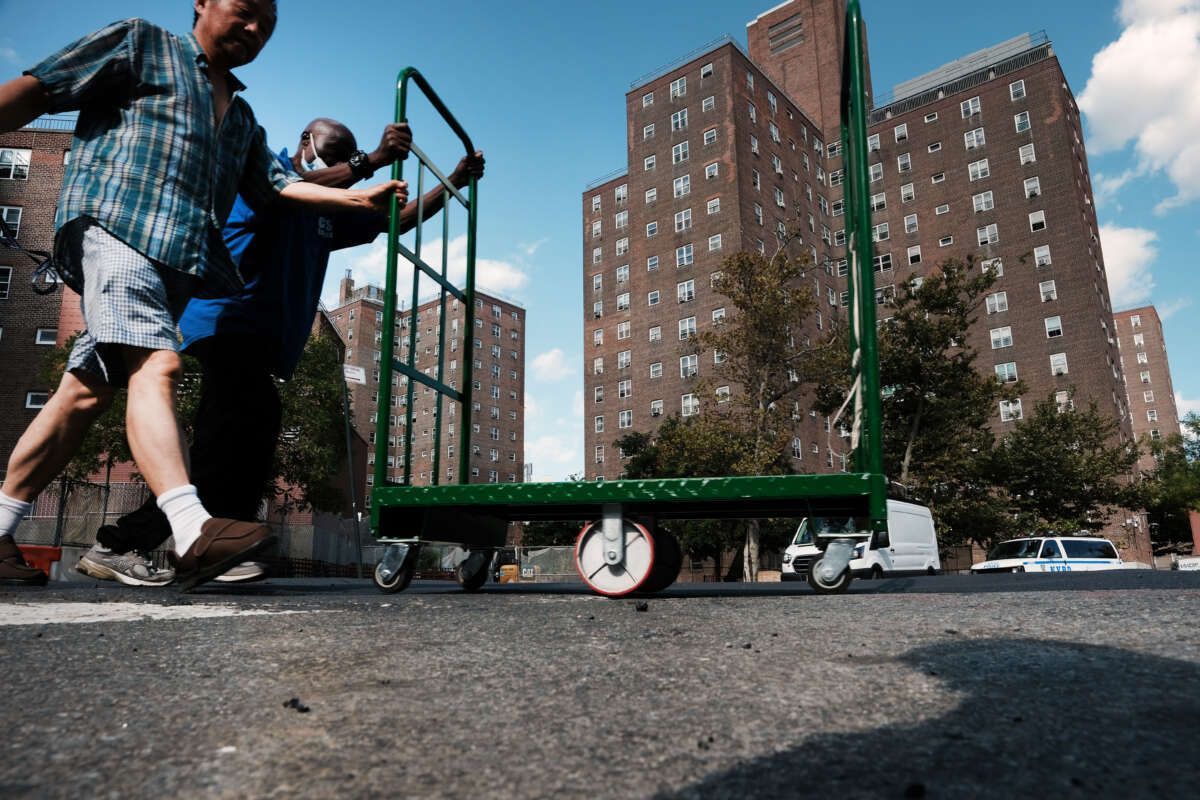HUD to Target Discrimination Against Formerly Incarcerated People
Proposed HUD rule change would stop federal housing providers from discriminating against many people impacted by mass incarceration

Each year, approximately 600,000 people are released from state and federal prisons, immigration jails and juvenile detention facilities, but their release, while an occasion to celebrate, also comes with significant barriers to successful re-entry to their communities.
The challenges faced by those who are released include finding a source of income and reestablishing contact with family and friends, but the biggest indicator of successful re-entry typically involves finding a safe and affordable residence. According John Bae, the Director of the Opening Doors to Housing Initiative at the Vera Institute of Justice, “Housing instability leads to increased interactions with police, increases the likelihood of arrest and contributes to the revolving doors between homelessness and incarceration. Housing is a way to reconnect. Without that stability, everything in life becomes more difficult.”
This, Bae explained, is because being unhoused can lead to arrest and jail time for violating laws against sleeping or resting in public parks, camping on sidewalks, or bedding down under bridges or in doorways. The resulting incarceration, the National Low Income Housing Coalition reports, puts the unhoused in a particularly vulnerable position since discriminatory rental policies, coupled with affordable housing shortages, make finding shelter close to impossible for many people with criminal records.
The federal Department of Housing and Urban Development (HUD) has proposed regulations for public and HUD-supported housing and to protect those at risk of eviction following the arrest and conviction of a household member. Although the HUD proposal will not apply to the private housing market, housing justice activists see the change as a step in the right direction.
Under the proposed rules, applicants for public or HUD-assisted housing will no longer be categorically denied apartments because of criminal convictions. Instead, applicants will be “individually assessed” and all 3,300 U.S. Public Housing Authorities (PHAs) will be required to weigh mitigating factors and peruse multiple sources of information to minimize “unnecessary exclusions.”
The goal, HUD reports, is to ensure the maintenance of housing that protects the “health, safety and peaceful enjoyment of their residents, their staffs and their communities.” At the same time, the shift recognizes that the nearly 50-year-old policy of excluding people with criminal histories has disproportionately harmed Black and Brown people, Native Americans, people with disabilities, and low-income and underserved communities.
In 1975, federal regulations instructed public housing authorities to consider the criminal histories of tenants and housing applicants, but it was not until 1996, at the height of the push for federal and state tough-on-crime legislation, that HUD issued its “one-strike, and you’re out” policy. This led to the eviction of entire families — even when only one household member was convicted of a crime. Worse, it made still-housed families afraid that allowing a newly released person to live with them would jeopardize their continued tenancy. Advocates charge that these policies not only increased the ranks of the unhoused but also elevated prison recidivism rates.
Read more about the proposed HUD rule changes in "Biden Administration Boosts Fair Housing Access for People with Criminal Records" at The Appeal. The Appeal is a nonprofit news organization that envisions a world in which systems of support and care, not punishment, create public safety.










